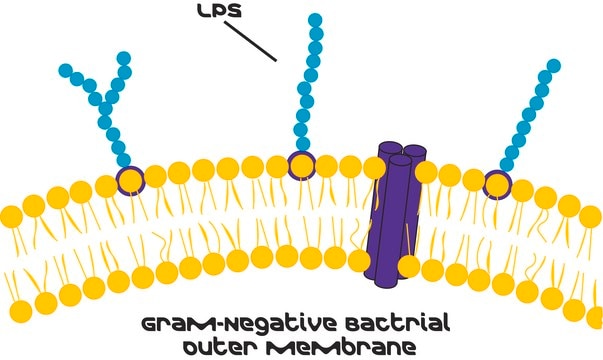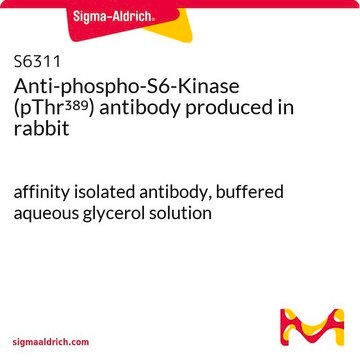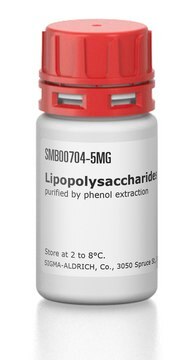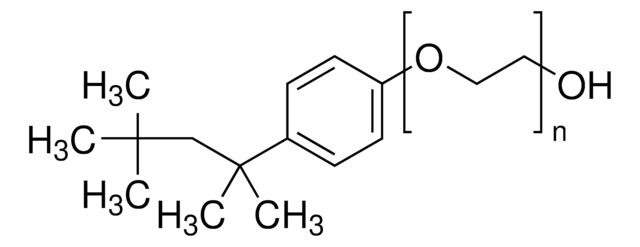S4047
Anti-S6 Kinase antibody produced in rabbit
whole antiserum
Synonym(e):
Anti-p70S6k
About This Item
Empfohlene Produkte
Biologische Quelle
rabbit
Qualitätsniveau
Konjugat
unconjugated
Antikörperform
whole antiserum
Antikörper-Produkttyp
primary antibodies
Klon
polyclonal
Mol-Gew.
antigen 70 kDa
Enthält
15 mM sodium azide
Speziesreaktivität
rat, mouse, human
Methode(n)
microarray: suitable
western blot: 1:10,000 using mouse NIH 3T3 fibroblast cell extract
UniProt-Hinterlegungsnummer
Versandbedingung
dry ice
Lagertemp.
−20°C
Posttranslationale Modifikation Target
unmodified
Angaben zum Gen
human ... RPS6KB1(6198)
mouse ... Rps6kb1(72508)
rat ... Rps6kb1(83840)
Allgemeine Beschreibung
Anti-S6 Kinase reacts specifically with S6 kinase (70 kDa) in human, rat and mouse.
Spezifität
Immunogen
Anwendung
Haftungsausschluss
Not finding the right product?
Try our Produkt-Auswahlhilfe.
Analysenzertifikate (COA)
Suchen Sie nach Analysenzertifikate (COA), indem Sie die Lot-/Chargennummer des Produkts eingeben. Lot- und Chargennummern sind auf dem Produktetikett hinter den Wörtern ‘Lot’ oder ‘Batch’ (Lot oder Charge) zu finden.
Besitzen Sie dieses Produkt bereits?
In der Dokumentenbibliothek finden Sie die Dokumentation zu den Produkten, die Sie kürzlich erworben haben.
Unser Team von Wissenschaftlern verfügt über Erfahrung in allen Forschungsbereichen einschließlich Life Science, Materialwissenschaften, chemischer Synthese, Chromatographie, Analytik und vielen mehr..
Setzen Sie sich mit dem technischen Dienst in Verbindung.





